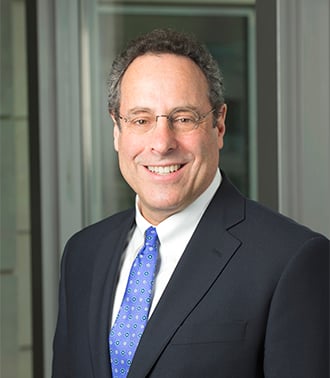No More Iranian Pistachios? Possible Changes to US Trade Sanctions Under President Trump
Donald Trump's surprise victory on November 8, 2016, portends substantial changes across the US national security and foreign policy apparatus, and we believe that sanctions policy is no exception. In this Advisory, we discuss how President Trump might modify sanctions on Iran, Cuba, and Russia to implement policy statements made during his campaign.
Iran Sanctions
President-elect Trump was unequivocally a critic of the Joint Comprehensive Plan of Action (JCPOA), the so-called Iran nuclear deal negotiated by the Obama Administration, which entered into full force on January 16, 2016. Pursuant to the JCPOA, President Obama lifted most US "secondary sanctions" (i.e., sanctions imposed directly on non-US companies for doing business in and with Iran) as well as certain "primary sanctions" on US persons (i.e., sanctions restricting US persons from doing business in Iran). Many UN and EU sanctions on Iran were also lifted.
Trump has promised to "renegotiate" the JCPOA.1Because the JCPOA was intentionally constructed as a set of nonbinding "political commitments" (in part to avoid the need for legislative ratification of the agreement), there is no legal barrier to Trump unilaterally breaking those commitments and reimposing any or all of the US sanctions that were suspended under the JCPOA. Moreover, the US sanctions relief provided for in the JCPOA was all accomplished via unilateral Presidential waiver of statutory sanctions or termination of executive order sanctions (as opposed to any action by Congress). Thus, a new President has no legal barrier to revoking those suspensions.
It remains unclear how Trump will "renegotiate" the JCPOA. While Trump could unilaterally reimpose US sanctions, reimposing UN sanctions would require the parties to the JCPOA and the UN Security Council to engage in a formal process under the agreement and reimposing EU sanctions would of course require the consent of EU member states. Nevertheless, the US sanctions relief implemented under the JCPOA was broad and could be reversed.
A full description of the JCPOA's sanction relief, all of which could be reversed, is available at the link below.2 These sanctions on Iran that Trump could reimpose include:
- The relisting of Iranian entities on the Specially Designated Nationals (SDN) List, including the Central Bank of Iran (CBI), National Iranian Oil Company (NIOC), and the National Iranian Tanker Company (NITC).
- Restrictions on the ability of non-US companies and financial institutions to deal in Iranian rials or support investments in the Iranian energy, shipping, and shipbuilding sectors.
- Restrictions on providing underwriting services, insurance, or re-insurance in connection with entities who had been delisted, including underwriting services, insurance, or re-insurance in connection with activities in the energy, shipping, and shipbuilding sectors of Iran, for NIOC or NITC, or for vessels that transport crude oil, natural gas, liquefied natural gas, petroleum, and petrochemical products to or from Iran.
- Termination of the licenses for sale of US-origin aircraft and non-US-origin aircraft with US-origin parts and components (and termination of the favorable licensing policy for others seeking to sell aircraft and aircraft parts to Iran).
- Termination of the license that now permits non-US airlines to fly US-origin aircraft to or through Iran.
- Termination of the license that permits companies owned or controlled by US persons to do business in Iran provided they are walled off from US management or involvement.
- Termination of the sanctions could include even renewed restrictions on the sale of Iranian-origin pistachios and carpets in the United States, which the Obama Administration authorized earlier this year.
While it is unclear whether and how quickly President-elect Trump may act to alter the JCPOA, we think it is likely that after he becomes President, Trump will reimpose at least some sanctions or impose new sanctions at his executive discretion in order to signal a more assertive posture towards Iran. On the other hand, he will come under significant pressure from the US business community and US allies not to repudiate the JCPOA entirely, so it is possible that his Administration may take actions that are more symbolic and less sweeping than Trump's campaign rhetoric suggested.
The Cuban Embargo
With respect to Cuba, President-elect Trump has similarly criticized the Obama Administration's Cuban policies, suggesting that President Obama had given away too much in normalizing relations with Cuba and that a Trump Administration would renegotiate the terms of this normalization or strengthen the Cuban embargo. Prior to the election, Trump stated:
All of the concessions Barack Obama has granted the Castro regime were done through executive order, which means the next president can reverse them, and that I will do unless the Castro regime meets our demands[.]3
Three days after the death of Fidel Castro, Trump again appeared to threaten to roll back the Obama Administration's Cuba policy, tweeting: "If Cuba is unwilling to make a better deal for the Cuban people, the Cuban/American people and the US as a whole, I will terminate deal."
As in the Iran context, Trump is correct that he could reverse the Obama Administration's actions by executive order. Over the past 24 months the Obama Administration has released a series of regulatory changes to the Cuban embargo that have allowed US persons to engage in a variety of transactions involving Cuba that were previously prohibited. President Obama has stated that these changes were designed to "make [the] opening to Cuba irreversible."4 Without Congress, however, there is no change to the embargo that the President could unilaterally make permanent. The Obama administration appears to believe that by opening enough doors to two-way commerce and engagement between the United States and Cuba, Americans and American business interests will become too intertwined with Cuba to make reversing the normalization politically untenable. It remains to be seen whether that effort bears out or if anti-Cuban forces in the new administration convince President-elect Trump to cancel the changes made by the Obama administration notwithstanding harm to US business interests.
If President Trump reverses course in Cuba, the following are likely targets of rollback to the stronger embargo that existed prior to President Obama's second term:
- US banks are now permitted to process transactions that begin and end outside of the United States (so-called "U-turn" transactions). This means that trade with Cuba by third-country nationals can be done in US dollars largely without risk. A reversal would reimpose restrictions on any such processing by US banks.
- Regular commercial airline flights between the US and Cuba have begun and more are slated to begin through the end of the year.
- Overall, travel to Cuba is much easier for US persons (it is now generally authorized if US persons meet one of twelve broad categories of non-tourist travel (from research to "people-to-people" exchanges). Starwood and Marriott are planning to open hotel properties in Cuba.
- A variety of exports, partnerships, and business opportunities are now open to US persons in Cuba.
- US businesses are now permitted to establish a physical presence in Cuba if they are doing authorized business in Cuba.
President Trump could reverse some or all of these new authorizations (or a variety of other regulatory changes implemented by President Obama). On balance, we believe it is less likely that Trump will quickly carry out his threat to revoke these changes to the embargo, but it is also unlikely that Trump will, in the foreseeable future, continue to expand US engagement in Cuba. The Trump Administration's Cuba policy may depend, in part, on whether outstanding US claims and legal judgments against Cuba can be quickly resolved.
Russia-Ukraine Sanctions
In contrast to his statements regarding Iran and Cuba, press reports and the President-elect's own statements suggest that President Trump is likely to support a softer approach on Russia than the current administration. In fact, Vladimir Putin himself has stated publicly that "[t]he President-elect confirmed he is willing to normalize Russian-American relations. I told him the same. We did not discuss where and when we would meet[.]"5 Trump's putative National Security Advisor Michael Flynn has also been a public proponent of moving the US closer to Russia. On the other hand, many Republican foreign policy officials, including Senator John McCain, oppose any softening of sanctions on Russia, and it is possible that Trump may offer other diplomatic overtures short of lifting sanctions.
President Trump could lift some or all of the current Russia-Ukraine sanctions (all of which are based on executive action and could be unilaterally lifted by the President) to generate diplomatic good will between the United States and Russia. There are three major components to US Russia-Ukraine sanctions:
- A near complete embargo on any US transactions involving the Crimea Region of Ukraine (which was annexed by Russia and remains in dispute).
- A series of listings on the SDN List of Russian government officials and oligarchs with close ties to Putin.
- A set of "sectoral sanctions" designed to limit access to capital by major Russian banks, energy companies, and defense companies, and limits on the export of equipment to support the development of Russian deepwater, Arctic offshore, or shale energy projects.
If Trump were to begin to lift Russia sanctions to change the current relationship between the two countries, he might begin by eliminating some elements of the sectoral sanctions, as well as delisting some of all of the Putin allies currently on the SDN List. It is less likely that Trump would lift restrictions on Crimea given the more complicated nature of the situation in Ukraine.
Conclusion
During the transition and initial months of his Presidency, Donald Trump is likely to face significant opposition from inside the federal government and from allies to reimposing extensive sanctions on Iran and Cuba and lifting sanctions on Russia. He may reimpose some sanctions on Iran in order to demonstrate resolve and toughness, but he may not go as far as his campaign rhetoric suggested. It is worth reiterating, however, that unlike many other areas of policy, the Executive Branch retains substantial authority to make changes to sanctions unilaterally and without warning.
-
See Whither the Iran Deal Under Trump?
-
See Implementation Day: Iran Sanction Relief Arrives, and Is More Robust Than Expected for US Companies With Foreign Interests.
-
See Business or Politics? What Trump Means for Cuba.
-
See Statement by the President on the Presidential Policy Directive on Cuba.
-
See Russian President Putin says Trump confirmed willing to mend ties.





